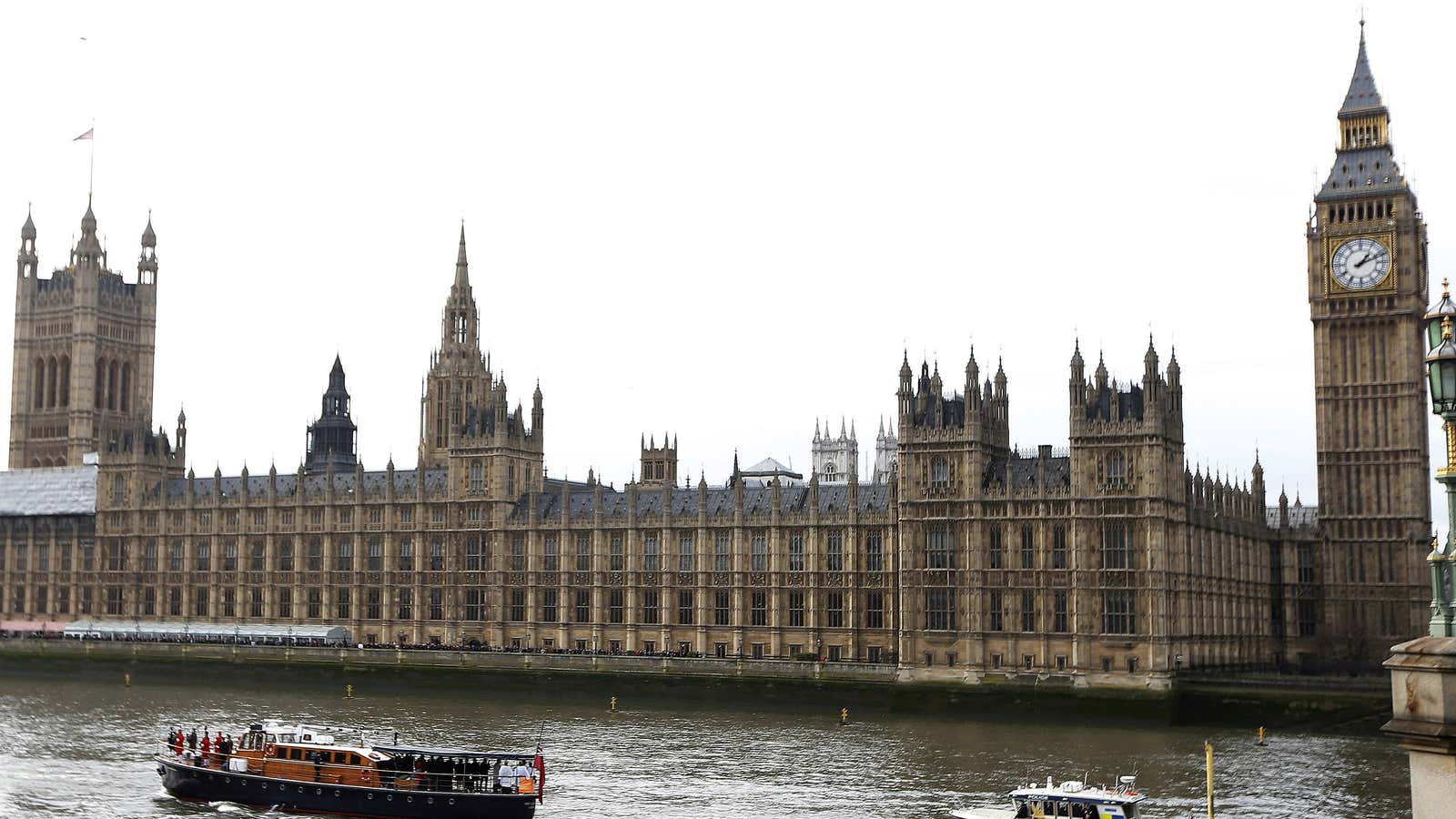For some Nigerians, there’s an inevitable feeling of deja-vu about their country’s former petroleum minister, Diezeani Allison-Madueke, being arrested in London on charges of money laundering.
That’s because in 1984, under the rule of current president Muhammadu Buhari, the Nigerian government tried and failed to abduct another former cabinet minister, Umaru Dikko, in London. Dikko had been accused of looting as much as $1 billion.
BBC World Service retold the caper in 2012:
On a summer’s day, Mr Dikko walked out of his front door in an upmarket neighbourhood of Bayswater in London. Within seconds he had been grabbed by two men and bundled into the back of a transit van.
“I remember the very violent way in which I was grabbed and hurled into a van, with a huge fellow sitting on my head – and the way in which they immediately put on me handcuffs and chains on my legs,” he told the BBC a year later.
Labelled “Nigeria’s most wanted man,” a plot was hatched to get both him and the money back.
The extraordinary plan was to kidnap Mr Dikko, drug him, stick him into a specially made crate and put him on a plane back to Nigeria – alive.
The messy incident involving ex-Mossad Israeli operatives, a brave British customs officer, and a major diplomatic fall-out with Britain, shows just how much the ruling Buhari has learned about the importance of soft power and diplomacy over the past three decades.
At that time, president Buhari was a 42-year-old, no-nonsense, rigid military dictator and strict disciplinarian.
While Buhari has retained a strict, no-nonsense approach to leadership (one that is sometimes considered too slow), he also appears to have become a team player when it serves his interests—for example, at his inauguration in May when he talked about working with Nigeria’s border nations in the battle against the Islamic insurgents Boko Haram.
Now, Buhari is targeting Allison-Madueke as part of his election pledge to hold senior government officials accountable for corruption. Allison-Madueke is at the center of a missing $20 billion oil scandal; the country’s central bank, along with other independent investigations, have flagged the national oil company’s suspect accounting on her watch.
Whereas in the Dikko case Buhari ran into trouble with the British government for attempting to abduct a resident on its territory without warning, this time Buhari appears to have been working closing with British authorities before Allison-Madueke’s arrest; The raiding of her home in Abuja by local anti-graft agents appeared to be synced with her arrest in London.
And it was a newly formed International Corruption Unit of UK’s National Crime Agency that made the arrests of five people (including Allison-Madueke) connected to the case. Those arrests came after concerted efforts by Buhari to pressure Western governments and financial institutions to help combat money laundering and recover misappropriated funds from corrupt regimes, particularly in African countries.
Buhari’s government will need the continued support of international heavyweights like Britain and the US to prove his resolve in eradicating corruption in Nigeria. Unlike in 1984, he now has the democratic support of the majority of Nigerians, which Western governments like Britain can feel more comfortable standing behind.
